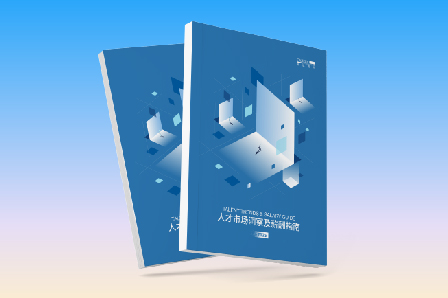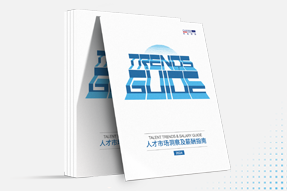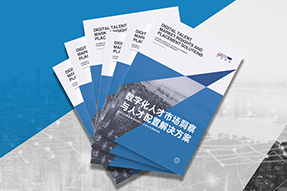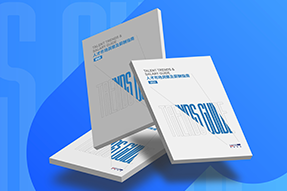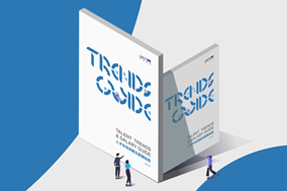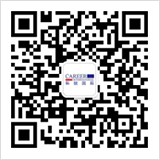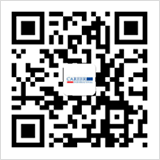In a rapidly evolving world like today, the only thing that doesn’t change is change itself, which applies in the human resources industry world. To explore possible answers to the concerns of HR practitioners and company leaders, we launch “CI Live 2021”, a talk show that enables a dialogue with human resources executives and experts from established domestic and multinational firms. We believe their insights and hands-on experience in the domain will inspire us to find more possibilities.
As the first episode, we’re honored to have Anne-Marie McCaughan, the head of GSK recruiting in China, and Gary Li, RPO GM at Career International with us. Enjoy the left part of their dialogue in video and text as below:
Gary: As multi-generational workforce now enters the workplace, do you think there is any generation divide? And how to effectively attract and manage the young talents?
Anne-Marie: Actually there have been a couple of things that I've seen that have worked in different organizations. So I do see more of a trend to include conversation between these generations. We see a lot more activities where we would have an older member of the workforce partner with a newcomer who would fit one of the categories that we're describing. And then there's an interchange of ideas.
One of the things that I've seen that has been quite nice, which we did in GSK that I want to share. So in team meetings, it's quite common that we have the observer role. And so in the APAC team for a while we invited a generation Z-or-so person to be the observer for the meeting, and then they would give us feedback in terms of how they felt it went. So I think we see more proactive opportunity to engage that workforce, with more conversation around what it feels like and how we can improve. So where HR is going, and where organizations are going, is building people-driven strategies that make sure we include these types of workforce members. So that's one thing that I'd call out.
In terms of GSK itself, we're a multi-generational workforce. We’re a diverse and inclusive workforce. In our organization, we have a nice demographic spread. Post-90s would be 30% of our workforce. Whether we call it youth or vitality, we have quite a big percentage of our workforce that would fit that category. We have good hiring programs that are designed to develop future leaders, and that are taken seriously. We run those in China and internationally. There's a real career growth, and we have a very vital campus hiring program and an intern hiring program.
Any time in the GSK office environment, there's a good buzz, and I think that's what we get from this youthfulness. You're starting out on your career. You got well qualified. Some of the talents that we see are very well qualified that we're hiring. And they're an engine. They are powerhouse. They can do a lot for us. So they're skilled. They're capable. They're free. So they're really available to support you from a team perspective on any project, willing and engaged.
So I don't see a divide. I see an opportunity. If there is a divide of any description, then it's up to the organization to change the way in which it works to make sure it has an inclusive organization where people are represented and they have a voice and they can be given meaningful work and also appreciated.
And then the other thing important is career path. I'm not unaware that there's an external topic that younger people have a challenge. Like this year is incredibly challenging, with COVID-19 for work opportunity. We see a massive reduction intern hiring opportunity. The ability to grow your career, even to finish school, has been really difficult for any population over the last couple of years. So there're real concerns that exist that I don't want to deny, but I also think in organizations, they should have proper career path.
If you have clear expectations at the beginning around: how long this opportunity is going to last? What's going to happen after this opportunity? Is there a leadership program? Could you consider other career guidance opportunities? And then within the experience itself, are you getting real work experience and not rubbish work experience? Real work experience usually has a leader involved, has projects involved, and has team engagement involved. So these are important things to feel that the individuals are integrated to your team, they want to stay, they feel valued, and they feel appreciated. And then they leave you well equipped for a new future that's quite bright. Personally I love to check the temperature of my team by how my interns feel, and generally how do people feel in the team. And if they're all feeling good then, we can generally assess that we're doing a good job so they're included.
Gary: How to build an employee value proposition (EVP) that works effectively in practice?
Anne-Marie: When you talk about big brands like the US tech companies from a trend-setting perspective, we can see that the idea of people's experience in the workforce is very important. And there are more roles that are dedicated towards people and organizational capability and how the experience of being at work is. So for us we have something called Modern Employer at GSK which is like, do you feel good?
GSK has a long history. So we've got 300 years, and we've also got 100 years in China. We’re a company that really believes in setting out like its intentions. I think we could call it objectives, intentions. From that perspective, we have a transformation of some old ideas that are valuable now as well so they're consistent. So it's Modern Employers. They've been set out in a few blocks which should be: Be you, Feel good, Keep growing. These are very important commitments that we have to our employees and to the way in which we work. They're generated about creating balance in your life.
But there have been a lot of initiatives that have been driven by this. So there were a number of commitments that were stated at a senior level and are being cascaded down through the organization. They fit into serious commitments. They fit into enacting what it’s like to be you, to feel good, and to keep growing. So what I'd call out is something we have which is performance for choice, which is again like a global strategy that's been rolled out. And that enables such a lot of flexibility with regards to how you work, the way you work, where you work, the time you work. It enables a lot of empowerment for individuals to construct the way, if they have clear objectives, have good relationships, and digital ways of working.
The last year, we've seen a lot of offices close, a lot of change in the way we work. So we're driven into a much more digital style of working. With the technology that exists, you can have live interaction all of the time. And then you can be free to do that wherever you like, can't you? You can do that from home in the morning. You can do that from somewhere else if you'd like to. There're some real changes that have happened that are driving a culture. We’re performance driven, and we do care about our people to balance their life, and balance their work life and home life. Then what's the intention around that? Well, if people feel good and stay healthy, they can perform better. This is also one of the real values we have. GSK is very strong in this area. It's almost one of the most impressive organizations that I've worked in to do that.
And what's the end result? Well, our end result is that we want to get better results for our patients. We want to get more products on the market so that they can do more, feel better, live longer. These are our concepts. Treating your workforce well means everybody betters. So it's all interlinked. It's very subtle. This is the objective. So GSK is quite a cool organization to work within with this way of working. It may be contemporary in the west, but not so contemporary in China to have such a flexible work style, and such autonomy for individuals to be accountable not only for their results, but also for the way they achieved their results. There are a lot of factors that make this work, and it’s good to see this does work generally.
When you look at EVP, it has to be driven from a real authenticity of what the organization describes. EVP is not just a thing that you just design and then you put outside. From experience perspective, if your EVP is like work less, earn more money, sleep more, the reality of your EVP is not true. Whether you go to Kanzhun or Glassdoor, the real actual experience of what the workplace is like is already available on social media. What we've seen over a number of years is this much more access to what really happens in workplace.
So the EVP, and our EVP particularly, it has to be driven by real values which are true to the organization, which are what we care about. And it's supported by a whole framework of HR systems and growth systems. And then compared to the Chinese internet companies and how they work and their type of culture, we've moved more to an accountability model. What we have within our own organization is a level of trust. So responsibility and trust drives people to get things done, to be responsive, to have an opinion, to be available. With proper planning, we don't have to be there every day waiting for something. We can use time to go to the gym, to be healthy, to take care of our kids, to take care of our family, to take care of our parents. There have been a lot of things that we've changed around performance for choice, but also around payment and benefits to make sure that we can look after the whole family. If that isn't taken care of, how can you concentrate at work? So this is the true story. So we want people to be energized, well and fit, and maybe we contact them, but we can contact them digitally and ask them to respond in that way. And so you can still have that availability without having people sleeping at the desk waiting to hear from the boss.
Speaker's Profile
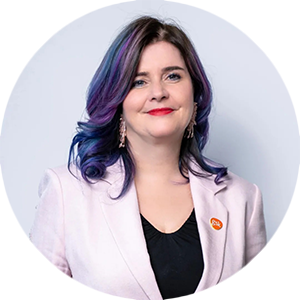
Anne-Marie McCaughan
Anne-Marie McCaughan is currently the head of GSK Greater China Recruitment, she is an accomplished, inspirational and forward-thinking talent acquisition leader who has built or supported exceptional teams that deliver any scale of high-end recruiting in competitive fields such as Tech and Digital, Consumer and Industrial and Healthcare across multiple geographic markets working within that challenging environment. Anne-Marie always leads her team to use the smartest methods and techniques to run an efficient recruitment operation to secure the company’s talent acquisition strategy.
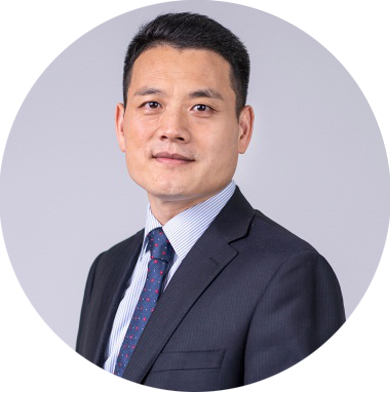
Gary Li
Gary Li is currently the General Manager RPO at Career
International. Also a member of the Sino-German Research Association, Gary
holds a Master's degree from RWTH Aachen University. He used to be
engaged in macro policy research at China Chamber of Commerce for Import &
Export of Machinery and Electronic Products under China’s Ministry of Commerce.
Over the past 10 years, Gary has accumulated rich management and practice
expertise in human resources and consulting services. He has provided recruitment
process outsourcing (RPO) service to hundreds of established multinational and Chinese
enterprises, and has implemented tens of thousands of projects about
recruitment organization structure, recruitment capacity building, recruitment
process optimization and talent placement. Gary specializes in areas including
pharmaceuticals, industry, chemicals, IT, consumer goods, etc. He also boasts
in-depth insights into the challenges and solutions of talent placement for
enterprises at different life stages.
 400-050-7798
400-050-7798 中文CN
中文CN










